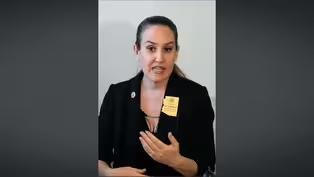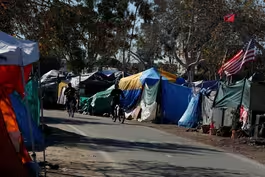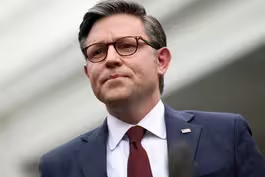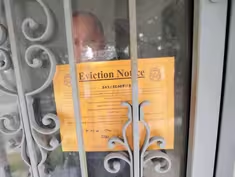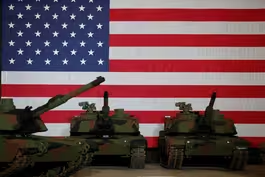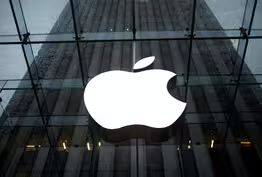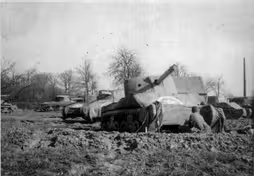
Unionizing marks latest challenge to student-athlete model
Clip: 3/21/2024 | 5m 38sVideo has Closed Captions
Push for unionizing marks latest challenge to student-athlete model
March Madness is underway and underlying the excitement of brackets and potential upsets is a conversation around athletes' efforts to unionize. It is the latest challenge to the student-athlete model that has defined college sports. John Yang discussed what could happen next with Gabe Feldman, director of Tulane’s sports law program and the school’s associate provost for NCAA compliance.
Problems playing video? | Closed Captioning Feedback
Problems playing video? | Closed Captioning Feedback
Major corporate funding for the PBS News Hour is provided by BDO, BNSF, Consumer Cellular, American Cruise Lines, and Raymond James. Funding for the PBS NewsHour Weekend is provided by...

Unionizing marks latest challenge to student-athlete model
Clip: 3/21/2024 | 5m 38sVideo has Closed Captions
March Madness is underway and underlying the excitement of brackets and potential upsets is a conversation around athletes' efforts to unionize. It is the latest challenge to the student-athlete model that has defined college sports. John Yang discussed what could happen next with Gabe Feldman, director of Tulane’s sports law program and the school’s associate provost for NCAA compliance.
Problems playing video? | Closed Captioning Feedback
How to Watch PBS News Hour
PBS News Hour is available to stream on pbs.org and the free PBS App, available on iPhone, Apple TV, Android TV, Android smartphones, Amazon Fire TV, Amazon Fire Tablet, Roku, Samsung Smart TV, and Vizio.
Providing Support for PBS.org
Learn Moreabout PBS online sponsorshipAMNA NAWAZ: March Madness is officially under way.
But underlying the excitement of brackets and potential upsets is a conversation around athletes' efforts to unionize.
Last month, the Dartmouth men's basketball team voted 13-2 to form a union, after the National Labor Relations Board ruled that the players were employees of the private university.
But, this week, the Ivy League's board said it would not enter into a collective bargaining unit with the team, saying adamantly that they are not university employees.
John Yang explores what could happen next.
JOHN YANG: Amna, this is the latest challenge to the student-athlete model that has defined college sports for so long.
Recent court decisions have pushed the NCAA to allow athletes to make money from their names, images and likenesses and to get limited payments to cover living expenses.
But allowing players to enter into collective bargaining for things like health benefits would be a whole new ball game.
Gabe Feldman is director of Tulane's Sports Law Program, and he's also the school's associate provost for NCAA compliance.
Gabe, there are all sorts of -- there so many steps to go here.
Dartmouth is appealing this to the National Labor Relations Board.
But, potentially, how big a deal is this?
GABE FELDMAN, Tulane Sports Law Program Director, Tulane University: It's massive, potentially.
As you said, there are many steps to go, and Dartmouth has announced that they are going to refuse to bargain with this union.
But, assuming it does go all the way and it is affirmed and that the Dartmouth men's basketball players can unionize, it is likely that virtually every college athlete in the country will be able to unionize and collectively bargain over their compensation and their other terms and conditions of employment.
So, it would completely upend the system of college sports we have had in the past.
It might lead to massive salaries on some ends and lower salaries on other ends, but it would certainly fundamentally change the relationship between the college athletes and their universities.
JOHN YANG: And the heart of this dispute is what qualifies as an employee.
Dartmouth, as you said, is not going to bargain with this union.
They said: "Varsity athletes in the Ivy League are not employees.
They are students whose educational program includes athletics."
The NLRB says they are employees because they get compensation, I can't remember, six pairs of shoes every season and tickets.
How do you weigh those?
What do you -- how do you look at those two competing arguments?
GABE FELDMAN: Well, I think you look at the past several decades, and every court that has looked at this has said that college athletes are not employees, because what they're doing is part of the educational system.
And we have seen a shift as there's more and more money pouring into high-end college sports, where people have said, well, these athletes are working really hard.
They are generating a lot of money for their schools.
The schools are controlling every hour of their day, and they're getting compensation through athletic scholarships.
For Dartmouth men's basketball players, it's very different.
They're not generating a lot of money.
They are not receiving athletic scholarships.
Yes, they are under the control of their coaches and their athletic department, but it's a very different analysis.
So I think this is a tough case for the Dartmouth men's basketball players to win.
It may be that many college athletes are employees because they are doing work for the benefit of their schools, but it may not be that Dartmouth men's basketball players are employees.
So this still may have a massive impact down the road, but I'm not sure it's clear that it's going to affect Ivy League players and athletes at the DII, DIII and really non-power football or basketball levels.
JOHN YANG: Well, there is a similar effort going on at a power school.
USC, University of Southern California, is trying to do the same thing.
Is this going to have any effect on USC's case, do you think?
GABE FELDMAN: Keep in mind, the National Labor Relations Act only applies to private employers.
So it would only apply to private schools.
Dartmouth is a private school.
Sol are all of the other schools in the Ivy League.
But the majority of Division I schools and the schools in the -- what used to be called the Pac-12 are public schools.
So the NLRA does not apply to them.
What's interesting in the USC case is, the NLRB is arguing that the conferences are also the employers of the athletes.
And because all of the conferences are private, if they win that case, it means that every athlete at every school, public or private, would also be covered under the NLRA.
So they would all have the right to unionize.
I think USC, if you look at the technical factors of employment status, probably, those football players and basketball players have a better argument because they are receiving compensation in the form of athletic scholarship, as opposed to six pairs of sneakers that the Dartmouth men's basketball players are receiving.
JOHN YANG: I mean, in addition to college athletes, there are a number of other programs, similar programs in college, like the marching band that marches at halftime for a football game.
Might they want to try to claim that they're their employees of the university?
GABE FELDMAN: I think they might.
We're certainly seeing the growth of unions on college campuses for student workers.
And it might be that the music student or the marching band student argues that they're doing just as much work as the college athlete.
And they're also getting free gear and they're getting free travel and they may be getting preferential admissions.
But what the National Labor Relations regional director said that distinguishes Dartmouth athletes from potentially Dartmouth musicians is that the music program does not exercise as much control over the musicians.
And they don't -- unlike with the athletes, they don't say if you're going to be a music student, you can't take certain majors and you have to miss class so that you can go to your rehearsals or your practices or your performances.
So that's the line that was drawn in the Dartmouth case.
But I do think it might open the door for not only all college athletes, but, as you said, other college students on campus who are working hard and believe that they should be protected by federal labor law.
JOHN YANG: Gabe Feldman from Tulane University, thank you very much.
GABE FELDMAN: Thanks for having me.
Arizona lawmaker on decision to end non-viable pregnancy
Video has Closed Captions
Clip: 3/21/2024 | 6m 27s | Arizona lawmaker explains why she publicly announced decision to end non-viable pregnancy (6m 27s)
Calif. passes homelessness plan, critics say it's not enough
Video has Closed Captions
Clip: 3/21/2024 | 6m 6s | Californians approve plan to address homelessness, critics say it's not enough (6m 6s)
How dysfunction has defined the House
Video has Closed Captions
Clip: 3/21/2024 | 6m 30s | How dysfunction has defined the House (6m 30s)
How evictions can have deadly consequences
Video has Closed Captions
Clip: 3/21/2024 | 8m 7s | How evictions and housing instability can have deadly consequences (8m 7s)
Military suicide rates highest among tank brigades
Video has Closed Captions
Clip: 3/21/2024 | 8m 34s | Study finds military suicide rates highest among tank brigades (8m 34s)
Why the DOJ is suing Apple in a landmark antitrust case
Video has Closed Captions
Clip: 3/21/2024 | 5m 58s | Why the DOJ and 16 states are suing Apple in a landmark antitrust case (5m 58s)
WWII 'Ghost Army' soldiers receive Congressional Gold Medal
Video has Closed Captions
Clip: 3/21/2024 | 1m 6s | WWII 'Ghost Army' soldiers receive Congressional Gold Medal (1m 6s)
Providing Support for PBS.org
Learn Moreabout PBS online sponsorship
- News and Public Affairs

FRONTLINE is investigative journalism that questions, explains and changes our world.

- News and Public Affairs

Amanpour and Company features conversations with leaders and decision makers.












Support for PBS provided by:
Major corporate funding for the PBS News Hour is provided by BDO, BNSF, Consumer Cellular, American Cruise Lines, and Raymond James. Funding for the PBS NewsHour Weekend is provided by...
